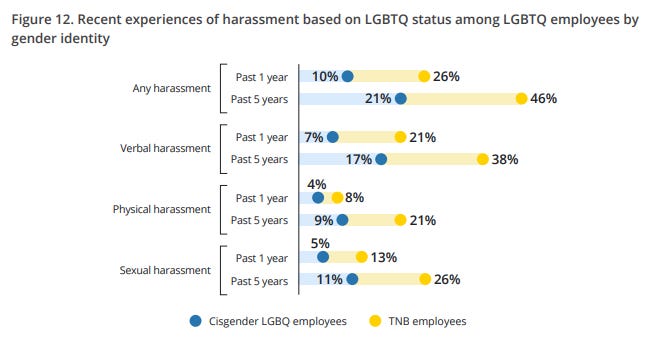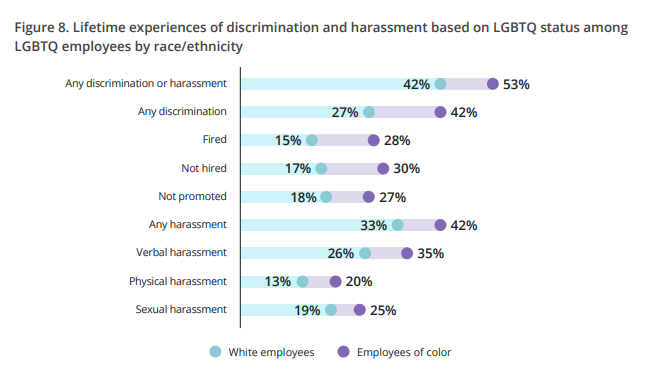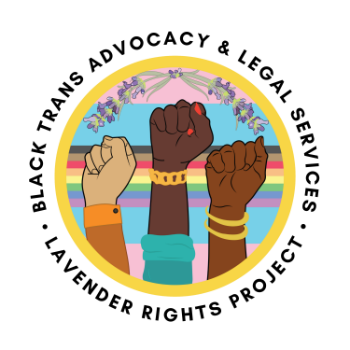Seattle Seahawks Week: Raising Money for the Lavender Rights Project
For this year's Seahawk's game we bring back a standby: raising money for the Lavender Rights Project, a Black Trans Advocacy and Legal Services Group in Seattle
For quite some time, a joke has circulated among those on Seahawks Twitter that I’ve been secretly a Seahawks fan, something that has resulted in light-hearted ribbing (is there such a thing as light-hearted harassment?). While that has been a source of some mild consternation, it has also been quite some fun.
It was worth turning this odd meme into something positive; a few members of Seahawks Twitter suggested turning it into an opportunity to fundraise for a charity.
On a few occasions when the Vikings have played the Seahawks (which some in Seahawks Twitter have called Arif Week. I didn’t come up with the name), I’ve raised funds for the Lavender Rights Project in Seattle, an organization that provides resources and tools for queer people in Seattle.
Over the last few years, they’ve focused on the most marginalized within that group, which are trans and gender non-conforming people of color.
As the Williams Institute at UCLA has demonstrated, the risks facing trans and gender non-conforming people of color are extremely high.


This has been further substantiated by the Human Rights Campaign reports that have come out every year in November. The most recent report details that as hate crimes against gender non-conforming and trans people have increased, it has been people of color who have taken the brunt of the damage, with 61 percent of victims of fatal anti-trans violence victimizing Black trans women.
When surveying victims of all kinds of violence, not just fatal violence, HRC found that 73.7 percent were women of color. It is more than direct violence that plays a role here, too.
In 2023, more anti-LGBTQ+ bills were introduced into state legislatures, a record in the United States. More than 85 were passed. In 2024, over 500 more bills of the same nature were introduced, and over 40 were passed into law. These bills attempt to erase the existence of trans people in schools – both as loci of discussion and as physical people.
They eliminate access to bathrooms, deny life-saving and age-appropriate medical care, legislate discrimination into the standard practice of schools and oust trans people from social spaces like sports teams and after-school clubs.
These types of social exclusion have real consequences; as one study points out:
Such discriminatory and exclusionary environments fuel social vulnerability over a lifetime; trans people have few opportunities to pursue education, and greater odds of being unemployed, thereby experiencing inordinately high levels of homelessness and poverty. Trans students experience resentment, prejudice, and threatening environments in schools, which leads to significant drop-out rates, with few trans people advancing to higher education.
Workplace-related research on lesbian, gay, bisexual, and trans (LGBT) individuals reveals that trans workers are the most marginalized and are excluded from gainful employment, with discrimination occurring at all phases of the employment process, including recruitment, training opportunities, employee benefits, and access to job advancement. This environment inculcates pessimism and internalized transphobia in trans people, discouraging them from applying for jobs. These extreme limitations in employment can push trans people towards jobs that have limited potential for growth and development, such as beauticians, entertainers or sex workers. Unemployment and low-paying or high risk and unstable jobs feed into the cycle of poverty and homelessness. When homeless trans people seek shelter, they are housed as per their sex at birth and not their experienced gender, and are subject to abuse and humiliation by staff and residents. In these environments, many trans people choose not to take shelter.
Again, these are exacerbated along other lines of oppression, meaning queer women of color often experience the most significant hurdles to finding inclusion and safety.
This is why I’ve continued to support the Lavender Rights Project, who focus on these intersections while providing resources and tools to provide housing and fight housing discrimination, make the legal system more responsive to the needs of the marginalized and produce policy change to ensure a more equitable future.






Donated. Genuine thank you for using your platform to highlight these issues and one group working to combat them. It means a lot to this reader, at the very least.
Just donated! Thanks for elevating this very important issue!